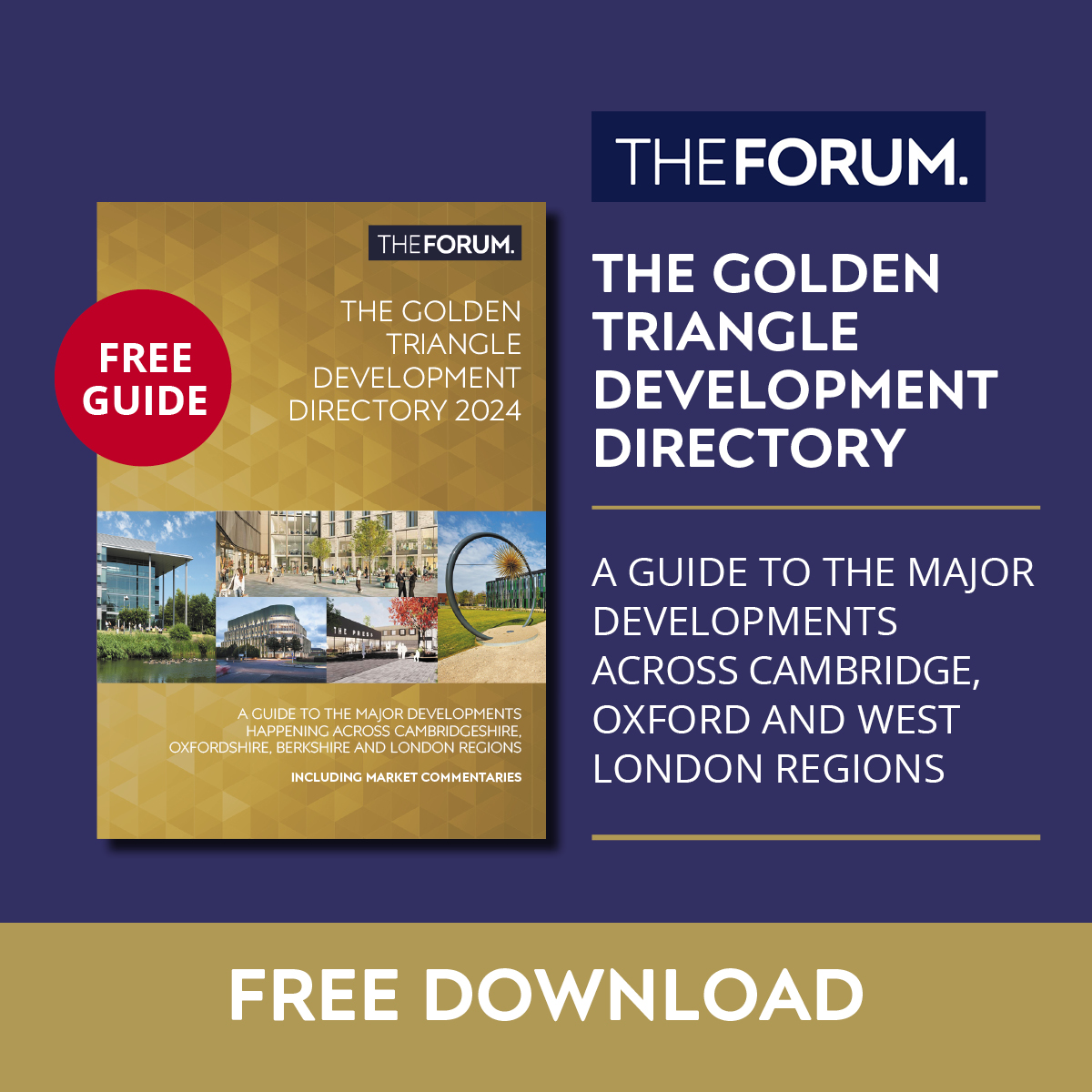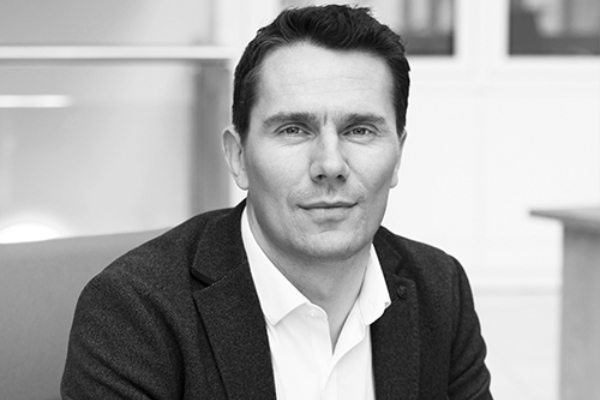Lyndon Gill is a Partner at planning and design consultancy Barton Willmore, an Eastern Echo and UK Property Forums partner.
—
Cambridge – and Silicon Fen – is ‘a safe place to do risky things’ I read in an excellent article by Brooke Masters in the FT. She’s talking about science and innovation and I think she’s right – there is certainly something special, creative, dynamic and open-minded about so much of what happens in Cambridge, but then I saw the latest draft of the Local Plan….the contrast couldn’t be more different, but more on that later.
What about the supply and demand of space? Is recent availability of traditional offices in CB1 going to see a shift to tech and life sciences in more central, accessible locations? How about the consideration of the city’s infrastructure and future? And where, how and by whom investment and development is going to take place?
I wrote in April about my positivity as a planner and my opinions based on the planning consent we secured at Lockton House in the city centre. Sparked by Brooke’s article and the probing question of whether Cambridge is going to continue to fly high or to burn itself out, here’s my overview of what I’m seeing in the market just now:
Investor appetite but are there enough places at the table for everyone? – a lot of people want in. By which I mean a lot of institutional investors are looking at investing in life sciences and technology, areas in which Cambridge has a global influence, and which have seen unprecedented growth through the pandemic in stark contrast to the fortunes of retail and the more traditional office sector. Part of the challenge therefore is the limited availability of land and sites to accommodate the opportunity these investors want, in such a small geographical area. There are very few short-term sites available and when they come up it’s a bidding frenzy. There is a danger of over-pricing and a narrowing of the market in terms of who can bid at those levels. I fear the assessments undertaken to inform the draft Local Plan are already out of date and fail to account for the pandemic. We are seeing a wider range of office availability in the City Centre, but an insatiable demand for investment in new Grade A space for Life Sciences. Either the existing stock can be re-purposed for this new wave of demand (which is perhaps wishful thinking), or Cambridge needs to find a better way to plan for and to provide a pipeline of sites to the market, because if it doesn’t there are plenty of ‘heir apparent’ rivals waiting in the wings across the wider Oxford-Cambridge Arc and the East of England.
Tackling the Transport & Infrastructure conundrum – of course there’s no easy solution here but we have to overcome this problem. Right now, with the schools on holiday and the pandemic ongoing, the roads are far quieter, but highway capacity remains a key challenge in spite of the best efforts of the authorities to deliver sustainable transport plans. The prominence of the bicycle (and more recently the e-scooter) and the guided busway are, of course, to be applauded but many of the City’s major employment hubs, and particularly those orientated towards tech and life sciences are located on or around some of the most traditionally congested areas. With the roads quieter, is it time to assess highway impact based on 3-day, rather than 5 day a week commuting? If the world has changed, as appears to be the case, this would support at least some short-term growth.
A far more palatable solution is of course investment in public transport and key infrastructure. The previous Greater Cambridgeshire Administration, led by Mayor Palmer saw the Cambridge Autonomous Metro (CAM) as the solution, things have moved on, but the solution is screamingly obvious – a low carbon loop system that connects low carbon hubs around the City, potentially serving a number of the key employment areas and creating the platform for greater residential growth. This could be driven by buses, further guided busways etc, but there is currently no plan, and if we can’t start getting more clarity on how to deliver that to this Global city, we simply won’t unlock or enable the potential that clearly exists to create a genuine European-based rival to Silicon Valley. The City and the wider region will need to become better and braver otherwise the opportunity to thrive will be denied.
Seize the moment or wait to have all the details buttoned down? – I’m concerned Cambridge will miss its opportunity. I note that the Development Plan released in draft this week, plans only for medium growth, and allocates very few new sites – in part due to water infrastructure capacity. National or Local Government has to commit to up front investment, yet again this reactive (rather than proactive) approach is holding back Cambridge’s Potential.
It is positive to see support or an extension to the Biomedical Campus (into the Green Belt) and for the Airport, but (a) I do not think this is anywhere near ambitious enough to address the housing affordability crisis or the demand for new employment space; and (b) how long do we have to wait for this Development Plan (which I suspect will need a further amendment to align with the pending Government Guidance on the Arc – if it ever turns up). The snail’s pace to date and the seeming need for all policy levels to align (The National Policy; Local Plan; the Transport Plan; and subsequent Supplementary Planning Documents) in Cambridge, like some perfect once in a lifetime solar eclipse, is halting sites and projects of any size progressing.
This delay, lack of strategic thinking and lack of ambition may cause some investors to adopt a more muscular approach, potentially challenging local policy (as we have seen in some recent logistics examples across the country). Housing affordability, the importance of the life sciences sector to the national economy and the delivery of key infrastructure, which is not being otherwise met, may well provide the basis for challenging the traditional scale of development, local policy allocations and even the Green Belt. I’d naturally prefer to see solutions ‘made in Cambridge’ but everyone is alive to the emphasis this Government is putting on life sciences and building back better post Covid.
There’s so much that’s exciting about being and working in Cambridge just now. I’m genuinely optimistic for the city and its future. But I do worry that we could all miss this moment and that the current window of opportunity could close before the city has made the most of it.
I hope not. There are excellent foundations for future success. But let’s act and not wait only to then regret.
Image source- Barton Willmore
© Eastern Echo (powered by ukpropertyforums.com).
Sign up to receive your free Eastern Echo newsletter every other week here.









